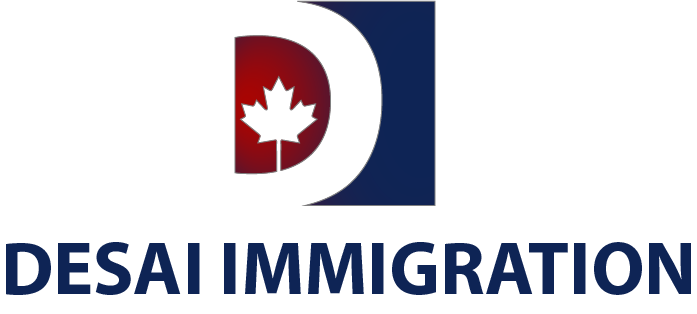Compliance & Regulatory Advice
Compliance and regulatory advice in Canada can vary depending on the industry and the specific regulations involved. However, some general principles apply across sectors:
Know Your Regulations: Stay up-to-date with the relevant laws and regulations that govern your industry. In Canada, this could include federal regulations as well as provincial regulations, depending on where your business operates.
Compliance Programs: Implement comprehensive compliance programs tailored to your business operations. This may involve creating policies and procedures that ensure adherence to relevant regulations.
Training and Awareness: Provide regular training and awareness programs for employees to ensure they understand their compliance obligations and the consequences of non-compliance.
Risk Assessment: Conduct regular risk assessments to identify potential compliance risks and vulnerabilities within your organization. This allows you to address issues before they become significant problems.
Monitoring and Reporting: Establish mechanisms for monitoring compliance and reporting any violations or breaches promptly. This could include internal audits, reporting channels, and whistleblower protections.
Engage with Regulators: Maintain open lines of communication with regulatory agencies relevant to your industry. This can help you stay informed about changes in regulations and demonstrate a commitment to compliance.
Seek Legal Advice: When in doubt, seek legal advice from professionals with expertise in Canadian regulatory compliance. They can provide guidance tailored to your specific situation and help you navigate complex regulatory requirements.
Coverage
Regulatory advice in Canada can cover various industries and sectors, each with its own set of regulations and compliance requirements. Here’s a more detailed breakdown:
Financial Services: If you’re operating in the financial sector, you’ll need to adhere to regulations set forth by the Office of the Superintendent of Financial Institutions (OSFI), the Financial Consumer Agency of Canada (FCAC), and various provincial regulatory bodies. This includes regulations related to banking, insurance, securities, and anti-money laundering (AML) compliance.
Healthcare and Pharmaceuticals: For those in the healthcare and pharmaceutical industries, Health Canada regulates products such as drugs, medical devices, and natural health products. Compliance involves meeting standards for safety, efficacy, and quality, as well as adhering to advertising and labeling requirements.
Telecommunications and Broadcasting: The Canadian Radio-television and Telecommunications Commission (CRTC) oversees regulations in telecommunications and broadcasting. Compliance may involve licensing, spectrum allocation, content regulations, and consumer protection measures.
Environmental Compliance: Environment Canada and various provincial environmental agencies enforce regulations related to environmental protection, pollution prevention, and resource management. Compliance may involve obtaining permits, conducting environmental assessments, and implementing pollution control measures.
Employment and Labor Laws: The Canadian government and provincial authorities regulate employment standards, workplace safety, and labor relations. Compliance includes adherence to laws related to minimum wage, hours of work, occupational health and safety, and employment equity.
Privacy and Data Protection: The Office of the Privacy Commissioner of Canada oversees privacy laws such as the Personal Information Protection and Electronic Documents Act (PIPEDA). Compliance involves protecting personal information, obtaining consent for data collection, and implementing data security measures.
Food and Agriculture: Agriculture and Agri-Food Canada, along with the Canadian Food Inspection Agency (CFIA), regulate food safety, labeling, and agricultural practices. Compliance includes meeting food safety standards, conducting inspections, and ensuring accurate product labeling.
Transportation and Logistics: Transport Canada regulates transportation safety, including air, marine, rail, and road transportation. Compliance involves obtaining permits, meeting safety standards, and adhering to regulations governing transportation of goods and passengers.
Intellectual Property: The Canadian Intellectual Property Office (CIPO) oversees intellectual property laws, including patents, trademarks, and copyrights. Compliance involves protecting intellectual property rights, obtaining registrations, and enforcing rights against infringement.
International Trade: For businesses engaged in international trade, compliance involves adhering to regulations related to customs, tariffs, trade sanctions, and export controls. This includes compliance with laws such as the Export and Import Permits Act and sanctions regimes imposed by Canada.
In each of these areas, seeking guidance from legal professionals or consultants with expertise in Canadian regulations is crucial to ensure compliance and mitigate legal risks. Additionally, staying informed about changes in regulations and proactively adapting your compliance practices is essential for maintaining regulatory compliance in Canada.
Remember, compliance is an ongoing process that requires diligence and commitment. By proactively addressing regulatory requirements, you can minimize risks and ensure the long-term success of your business in Canada.
Schedule a meeting
Let’s discuss the details
Schedule a meeting at one of the offices or online. A lawyer will analyze the situation, calculate the cost and help you find a solution based on your goals.
- Preparation of documents
- Due Diligence


